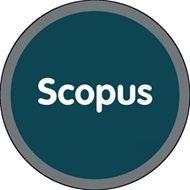Legal Policy of Halal Products for the Development of Small and Micro Enterprises after the Enactment of Government Regulation in Lieu of Law No. 2 of 2022 on the Job Creation
DOI:
https://doi.org/10.30631/alrisalah.v23i1.1323Keywords:
Legal Policy, Small and Micro Enterprises, Halal ProductsAbstract
This study aims to examine the legal policy on halal products for micro, small, and medium enterprises (MSMEs) after the enactment of Government Regulations in lieu of Law No. 2 of 2022 concerning Job Creation. To meet the demand for halal products, government policy is needed to simplify the halal product submission system while maintaining its production by MSMEs in Indonesia. Based on data from the Indonesian Statistics Agency, Indonesia is a Muslim country with 237.53 million Muslims, accounting for 86.9% of the total population. This indicates a significant need for halal products. MSMEs are one of the sources of halal products; hence, the government needs to enact laws that facilitate their production procedures. Objectively, the requirement to have halal certification, as mentioned in Article 4A of Government Regulation in Lieu of Law No. 2 of 2022 concerning Job Creation, is based on halal declarations from MSME actors. These actors make halal declarations based on the guidelines set by the Halal Product Guarantee Agency (BPJPH). The ratification of this regulation aims to strengthen MSMEs and support the increase in halal products. Therefore, a legal approach based on primary legal materials related to legislation and secondary legal materials based on documents that support this study was adopted. In addition, data from the Ministry of Cooperation, Micro, Small, and Medium Enterprises reveal that there are 8.71 million MSMEs in Indonesia. This potential needs to be facilitated by policies to simplify the production of halal products with a measurable process based on statutory provisions.
Downloads
References
Journals
Anat Denyingyhot, et. al. “A New Tool For Quality Control To Monitor Contamination Of Six Non-Halal Meats In Food Industry By Multiplex High-Resolution Melting Analysis (HRMA),†NFS Journal Volume 25, November 2021, p. 31. https://doi.org/10.1016/J.Nfs.2021.09.002
Abderahman Rejeb, et. al. “Integrating The Internet Of Things In The Halal Food Supply Chain: A Systematic Literature Review And Research Agenda,†Internet Of Things, Volume 13, March 2021, p. 1-2. https://doi.org/10.1016/J.Iot.2021.100361
Abdul Raufu Ambali and Ahmad Naqiyuddin Bakar, “People’s Awareness on Halal Foods and Products: Potential Issues for Policy-Makers,†International Halal Conference, PWTC, Kuala Lumpur, Malaysia, 4-5 September 2012, ScienceDirect, Social and Behavioral Sciences 121 (2014), p. 5. https://doi:10.1016/j.sbspro.2014.01.1104
Aiedah Abdul Khalek, “Young consumers’ attitude towards halal food outlets and JAKIM’s halal certification in Malaysia,†International Halal Conference, PWTC, Kuala Lumpur, Malaysia, 4-5 September 2012, Science Direct Social and Behavioral Sciences 121 (2014), p. 27. https://doi.org/10.1016/j.sbspro.2014.01.1105
Ahmad Rois Mansur, “Determination of ethanol in foods and beverages by magnetic stirring-assisted aqueous extraction coupled with GC-FID: A validated method for halal verification,†Food Chemistry, Volume 366, 1 January 2022, p. 1, https://doi.org/10.1016/j.foodchem.2021.130526
Chiratus Ratanamaneichat and Sakchai Rakkarn, “Quality Assurance Development of Halal Food Products for Export to Indonesia,†Social and Behavioral Sciences Symposium, 4th International Science, Social Science, Engineering and Energy Conference 2012 (I-SEEC 2012), ScienceDirect, Social and Behavioral Sciences 88 (2013), p. 135. https://doi.org/10.1016/j.sbspro.2013.08.488
Che Rosmawati Che Mohd Zaina, et.al, “Jurisdiction and Prosecution of Halal Related Matters in Malaysia: Challenges and Prospects,†Global Conference on Business & Social Science-2014, GCBSS-2014, 15th & 16th December, Kuala Lumpur Procedia - Social and Behavioral Sciences, Volume 172, 27 January 2015, p. 295. https://doi.org/10.1016/j.sbspro.2015.01.367
Hadi Peristiwo, “Indonesian Halal Food Industry: Development, Opportunities And Challenges On Halal Supply Chains,†Journal Of Islamic Studies And Humanities, Vol. 4, No. 2 (2019), p. 222. http://doi.org/10.21580/Jish.42.5228
Hayyun Durrotul Faridah, “Sertifikasi Halal Di Indonesia: Sejarah, Perkembangan, Dan Implementasi,†Journal Of Halal Product And Research, Volume 2 Nomor 2, Desember 2019, p. 72. https://doi.org/10.20473/Jhpr.Vol.2-Issue.2.68-78
May Lim Charity, “Jaminan Produk Halal Di Indonesia (Halal Products Guarantee In Indonesia), Jurnal Legislasi Indonesia, Vol. 14 No. 01 - Maret 2017, p. 99. https://doi.org/10.54629/Jli.V14i1.77
Nur Aini Rakhmawati, et.al. “Linked open data for halal food products,†Journal of King Saud University, Volume 33, Issue 6, July 2021, p. 728, https://doi.org/10.1016/j.jksuci.2019.04.004
Vloreen Nity Mathew, et.al. “Acceptance on Halal Food among Non-Muslim Consumers,†International Halal Conference, PWTC, Kuala Lumpur, Malaysia, 4-5 September 2012, Procedia - Social and Behavioral Sciences Volume 121, 19 March 2014, p. 263. https://doi.org/10.1016/j.sbspro.2014.01.1127
Nidya Waras Sayekti, “Jaminan Produk Halal Dalam Perspektif Kelembagaan,†Jurnal Ekonomi & Kebijakan Publik, Vol. 5 No. 2, Desember 2014, p. 196, https://doi.org/10.22212/Jekp.V5i2.84
Sunainee Mahama, et. al, “Postmarket Laboratory Surveillance For Forbidden Substances In Halal-Certified Foods In Thailand,†Journal Of Food Protection, Vol. 83, No. 1, 2020, p. 147. https://doi.org/10.4315/0362-028X.JFP-19-051
Widyawati, “Konfigurasi Politik Legislasi Produk Jaminan Halal Persepektif Fiqih Siyasah,†Asy-Syari‘ah Vol. 24 No. 1, Juni 2022, p. 123. https://doi.org/10.15575/As.V24i1.18724
Warto dan Samsuri, “Sertifikasi Halal dan Implikasinya Bagi Bisnis Produk Halal di Indonesia,†Al Maal: Journal of Islamic Economics and Banking, Vol 2 No. 1 Bulan Juli Tahun 2020, p. 100. https://doi.org/10.31000/almaal.v2i1.2803
Books
Muhammad Anwar Fathoni, Kesadaran Konsumen Terhadap Makanan Halal di Indonesia, Penerbit CV. Pena Persada, 2021.
Nurlaela, et. al, Produk Halal: Perspektif Hukum Perlindungan Konsumen,†Penerbit Pusaka Almaida Sulawesi Selatan, 2021.
Sukoso, et.al., Ekosisitem Industri Halal, Penerbit Departemen Ekonomi Dan Keuangan Syariah - Bank Indonesia, 2020.
Downloads
Published
How to Cite
Issue
Section
License
Copyright (c) 2023 Fatkhul Muin, Palmawati Tahir

This work is licensed under a Creative Commons Attribution-ShareAlike 4.0 International License.

This work is licensed under a Creative Commons Attribution-ShareAlike 4.0 International License.








